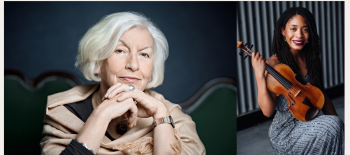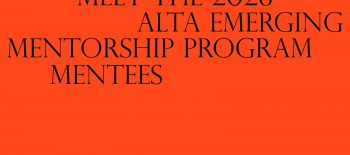In Memory of 9/11 Victims
To commemorate the victims of 9/11, on the 20th anniversary, the Polish Cultural Institute New York shares a poem by Adam Zagajewski “Try to Praise the Mutilated World”, read by actor Pawel Szajda, first published in the New Yorker, after the attack. To learn more about Zagajewski, a leading poet of the Polish New Wave, you are invited to watch an episode of “Encounters with Polish Literature,” where host David A. Goldfarb speaks about Zagajewski with the poet’s translator Clare Cavanagh.
Actor Pawel Szajda reads a poem “Try to praise the mutilated world” by Adam Zagajewski, translated from Polish by Clare Cavanagh. After the 9/11 attack Adam Zagajewski’s poem “Try to Praise the Mutilated World” was chosen by “The New Yorker” for the back page of the magazine to commemorate 9/11 victims (the issue of September 24, 2001).
WITHOUT END: NEW AND SELECTED POEMS by Adam Zagajewski, translated by several translators. Copyright © 2002 by Adam Zagajewski. Translation copyright © 2002 by Farrar, Straus and Giroux. Used by permission of Farrar, Straus and Giroux.
Adam Zagajewski (1945-2021) was a leading poet of the Polish New Wave, the generation including figures like Julian Kornhauser, Stanisław Barańczak, Ewa Lipska, and Ryszard Krynicki, younger than poets born before the Second World War like Zbigniew Herbert, Czesław Miłosz, and Wisława Szymborska. He was born in Lwów after the Soviets forced out the Germans (today L’viv in Ukraine) at the very end of the war, and like most Poles in the region that would become Soviet Ukraine, was relocated to the formerly German “recovered territories” annexed to Poland after the Yalta and Potsdam Conferences. Haunted by themes of transience and constant motion and memories of a native city he never really knew, he would become a staunch defender of the search for moments of transcendence in the imperfect world of the everyday. He left his mark on American culture when his poem, “Try to Praise the Mutilated World” was published in the last page of the November 24, 2001 issue of The New Yorker, following the tragedy of 9/11.
Pawel Szajda was born and raised in Connecticut and moved to New York City at the age of 18 to pursue acting. His film career began with his role in UNDER THE TUSCAN SUN, performing opposite Diane Lane and Sandra Oh. Audrey Wells directed the film in which Pawel played a Polish immigrant laborer with love troubles. Growing up bilingual and surrounded by many immigrant voices, he has a knack for accents. Upon returning from filming in Italy, he completed his studies at Fordham University at Lincoln Center. Pawel continued his film career with the independent thriller DEATH WITHOUT CONSENT and Dimension Films’ horror thriller VENOM. Pawel then acted a dark family drama, a play titled THE INFLICTION OF CRUELTY in New York City. Next, he traveled to Africa for seven months to play Corporal Walt Hasser in the critically acclaimed and Emmy winning HBO mini-series GENERATION KILL. Pawel’s Polish background was indispensable when starring in the film TATARAK (SWEET RUSH) in Poland, directed by two time Academy Award Nominee and Academy Award Lifetime Achievement recipient Andrzej Wajda. The legendary director said he cast Pawel because he was able to capture the pristine prewar essence of the character. At the film’s premiere at the Berlin Film Festival, TATARAK took home the Alfred Bauer award for innovation in film making. Working in Poland as a Polish-American was a homecoming of sorts and it led to another film there that would consume the following 18 months, shooting in Poland, Germany, and the US. In THE WINNER, Pawel played a pianist who goes to Europe to begin a concert tour during a troubling time in his life and decides to leave it all behind. It was his first feature film with top billing and earned him a best actor award at the Sarmatian Lion at the Orenburg International Film Festival in Russia. Television has kept him closer to home with guest stars on BLUE BLOODS, LAW & ORDER CI, PERSON OF INTEREST, WHITE COLLAR, DEADBEAT, BEAUTY & THE BEAST, and AGENT CARTER. In OUR KIND OF TRAITOR, Based on the John Le Carré novel, made for the big screen he played a cold blooded assassin and was directed by BAFTA winner and Emmy award nominee Susanna White, whom Pawel had previously worked with on GENERATION KILL. In the following film, IMPERIUM would have him be the leader of a neo-nazi skinhead gang playing opposite Daniel Radcliffe. Pawel called on his eastern European roots again to take on the roles in the feature films, ABOVE THE SHADOWS and THE HAUNTING OF SHARON TATE. He returned to playing villains in ELEMENTARY, DYNASTY, and THE ENEMY WITHIN. He can be seen next on the third season of FOR ALL MANKIND on AppleTV+. Pawel lives in New York City.
In this episode of “Encounters with Polish Literature,” we discuss these themes and more with Clare Cavanagh, Zagajewski’s leading translator into English. We talk about what it was like to work with Adam Zagajewski as a translator in comparison with Wisława Szymborska and others, and in general about the issues that a translator considers in carrying a literary work over to a new language. We also explore the poet’s deep fascination with music and painting, and how aesthetic brilliance can pierce through “ordinary life.” For the first time, Cavanagh reads new translations of three poems that have not yet appeared in English from Zagajewski’s last collection published in Polish.
Learn more: https://instytutpolski.pl/newyork/2021/04/28/zagajewski/



